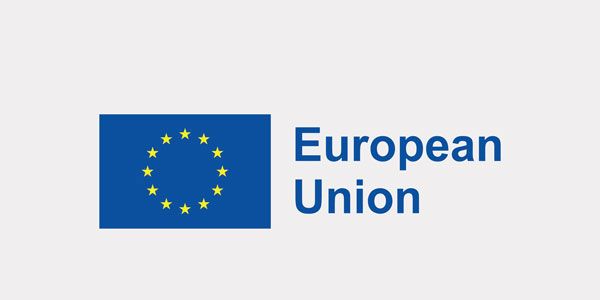“I used to study with a flashlight in my mouth. That meant I fell far behind in class and struggled to keep up,” says 19-year-old Etleni Hassan.
Her dream is to become a doctor and help women and children. Just five months ago, that dream seemed to be slipping away.
“My flashlight often ran out of batteries. I was also very tired when I had to study because I had to walk two hours to school and then work on making straw mats to sell,” says Etleni.
In the middle of last year, life in the Aysatia refugee camp changed significantly when the camp, with support from DCA, was connected to the national Ethiopian power grid.
Most people used to rely on firewood for everything at home because they did not have access to electricity. Now, electricity reaches 20,000 refugees in the camp, making a tangible difference for many families. “We have a light bulb in the ceiling, which means I can now study my lessons in the evening,” says Etleni.
Etleni’s life in the refugee camp
For the past ten years, Etleni has lived in the Aysatia refugee camp in Ethiopia after her family fled from intense fighting in Eritrea.
As Etleni grew older, she had to work more alongside her schooling to support her family, often studying late into the night.
Power increases family’s income
After the refugee camp was connected to the national power grid, Etleni’s family quickly invested in a freezer from which they sell cold beverages. Sales are booming in an area of Ethiopia where temperatures often exceed 40 degrees.
The freezer provides an extra income, allowing the family to buy food and clothing.

“As a household, we can manage much better with the sale of cold beverages,” says Etleni, continuing:
“Life was tough. It was difficult to get by with so little money. But we have noticed a clear improvement in our lives since we got electricity at home. My life has become easier, and I can keep up with school better now.”Etleni Hassan
The Aysaita camp was connected to the National electric grid/hydropower through the Integrated Protection and Development Assistance (IPDA) for Eritrean Refugees and their Host Communities in Afar Region project that was funded by the European Union and implemented through a consortium that was led by DCA. The project was designed to bring sustainable solutions in the fields of water, energy, education, livelihood, protection, coordination and capacity development support in a more integrated approach to refugee and host community in Afar.
About the Project
Full Title: Integrated Protection and Development Assistance (IPDA) for Eritrean Refugees and their Host Communities in Afar Region
Objectives: The overall objective of the Action is to contribute to create evidence-based, innovative and sustainable development and protection solutions for Eritrean refugees and their host communities in Ethiopia with a particular focus on Afar and the districts of Barhale and Aysaita.
The Specific Objective(s) covers the four major components of the RDPP and are organized as follows:
- To Improve social cohesion through improved access to integrated basic service delivery for Eritrean refugees (in and out of camp) and their host communities in Afar
- To improve livelihoods and employment opportunities for Eritrean refugees (in and out of camp) and their host communities in Afar.
- To improve protection of Eritrean refugees (in and out of camp) and host communities in Afar, with a particular focus on vulnerable groups
- To strengthen capacities of local authorities and multi-stakeholder coordination platforms to cooperate in developing an integrated approach for refugees and host communities
Period: 1st February 2017 – 31st July 2020
Consortium Partners:
Cooperazione Internationale (COOPI) – is a secular and independent humanitarian organisation founded by Father Vincenzo Berbieri in 1965 as an association and became a foundation in 2011. Its Ethiopian office is registered as a foreign charity since 1995. COOPI has been taking action to improve food security among the most vulnerable groups through the integration and diversification of livelihoods and increase of production capacity, It has also facilitated access to clean water and has promoted efficient irrigation systems.
Ethiopian Evangelical Church Mekane Yesus Development and Social Service Commission (EECMY-DASSC) – was instituted as a national Church on January 21, 1959.The Development and Social Service Commission (DASSC) was established in 2003. EECMY has been working both in emergency relief and long-term development activities in Afar region. In 2002, EECMY launched a development project aimed at improving the health and education services coverage of the Afar region.
African Humanitarian Action (AHA) – Since 1994, AHA has been providing lifesaving humanitarian assistance, development and advocacy services to refugees, internally displaced persons (IDPs) and local communities across Africa. AHA delivers multi-sectoral programmes in 20 African countries, including Ethiopia.
Total Budget: EUR 4,588,889
Donor: European Union


